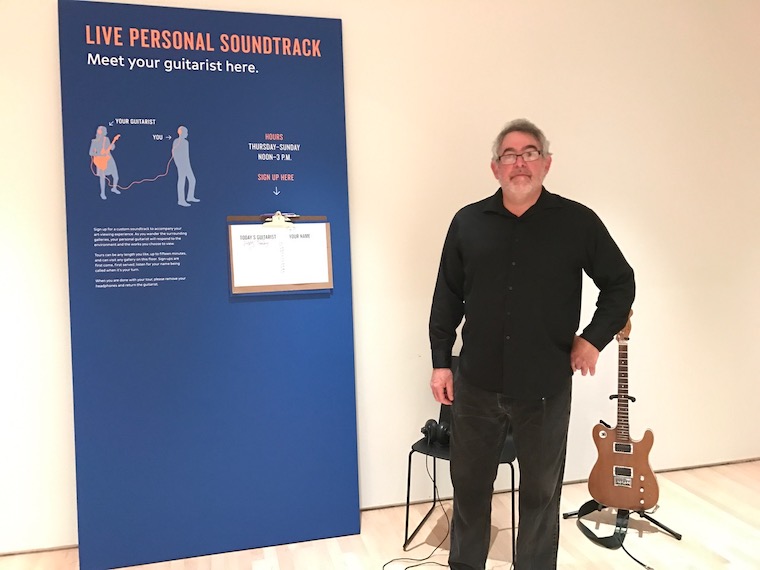Campus News
In Memoriam: Larry Polansky
Composer, theorist, and professor emeritus Larry Polansky passed away on May 9, 2024 at age 69. Following a successful career in the music industry, Polansky (‘77, math and music) returned to the UC Santa Cruz campus in 2013 to join the Music Department faculty. He retired in 2019, but his years here left a lasting impact on his colleagues, students, and campus as a whole.

Composer, theorist, and professor emeritus Larry Polansky passed away on May 9, 2024 at age 69. Following a successful career in the music industry, Polansky (‘77, math and music) returned to the UC Santa Cruz campus in 2013 to join the Music Department faculty. He retired in 2019, but his years here left a lasting impact on his colleagues, students, and campus as a whole.
Born in 1954, Polansky grew up in New York along with his brother Steven, a noted author. At age 10, he picked up the guitar and never put it down. He enrolled at the New College in Sarasota, Florida, before transferring to UC Santa Cruz, with a dual major in math and music.
Polansky was a founding member and co-director of Frog Peak Music, an artist-run organization devoted to publishing and producing experimental and unusual works. He helped create HMSL, a programming language from the 80s designed for making music. He also held the title of professor emeritus at Dartmouth University.
While teaching at UC Santa Cruz, Polansky pursued interests outside of music including organizing an ASL poetry festival in 2014. He curated five events (including an evening at the Santa Cruz Museum of Art & History), and brought deaf artists and performers from around the country to Santa Cruz. It was called “Eye Music: A Festival of American Sign Language Poetry at UCSC.” He spent nearly 20 years studying ASL, including many summers at Gallaudet University in Washington, DC. He also held a multi-year Mellon New Directions fellowship that allowed him to delve deeper into his study of ASL poetry and performance.
Polansky and Amy Beal, his partner and chair of the music department, led the effort to bring the Other Minds Archives to UC Santa Cruz. This archive, which is now housed in the McHenry Library, contains thousands of pieces of music-related material from local artists. This includes live performances, interviews, posters, photographs, scores and more.
Music lecturer Giacomo Fiore met Polansky while studying for his Ph.D. “He redirected my entire research, he changed the way I thought about American music and music in general. He was a historically great figure,” says Fiore.
After retiring, Polansky spent his time doing Tai Chi, and continuing his love of music. He composed a piece for Vanessa Ruotolo, a cellist and lecturer at UC Santa Cruz. According to Beal, he was fond of saying, “If you always do what you love, you will always be happy.”